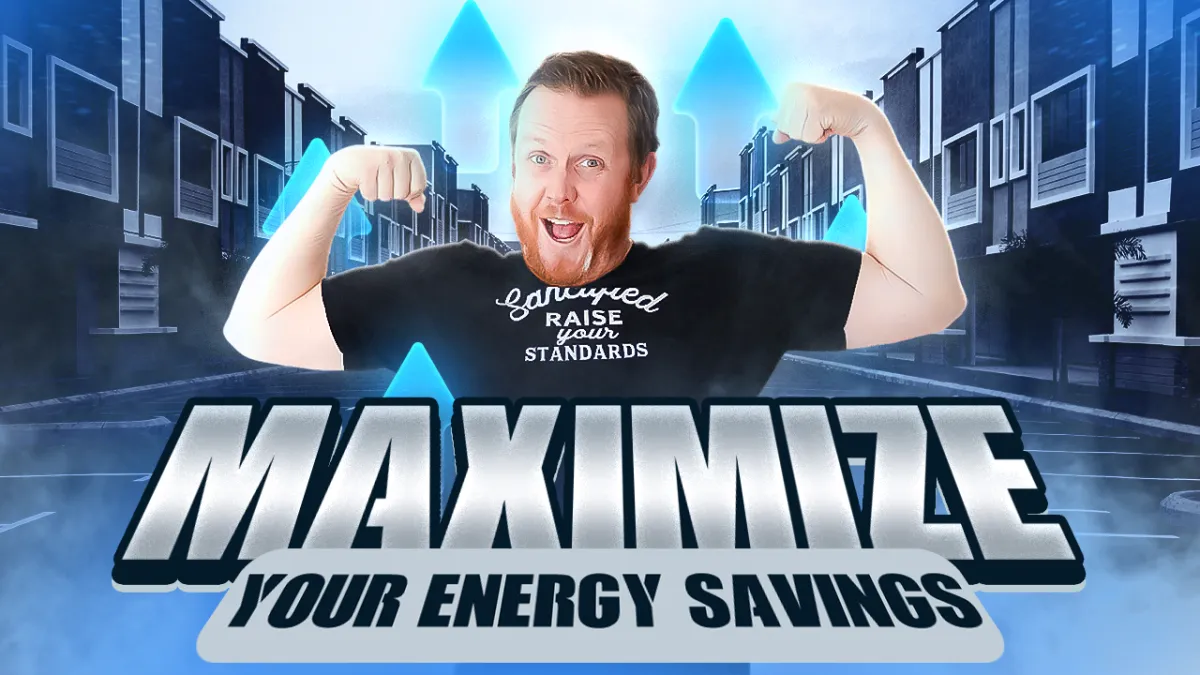
Energy Star Rebates and Eco-Friendly Building Tips
Hey, what's up everybody! It's TJ with Sanctified Homes, and today I want to talk about Energy Star rebates, tax credits, and eco-friendly building tips. As more people become conscious of their environmental footprint, integrating energy-efficient and sustainable products into new home builds has become increasingly important. Let’s dive into the benefits and opportunities available to you.
Understanding Energy Star Rebates
What Are Energy Star Rebates?
Energy Star rebates are incentives provided by federal, state, and local governments, as well as utility companies, to encourage the use of energy-efficient products. These rebates can significantly reduce the cost of purchasing and installing qualifying items in your home.
Types of Rebates and Credits
Federal Tax Credits: These are typically available for larger investments such as solar panels or geothermal systems. A percentage of the cost is returned to you as a tax credit, reducing your tax liability.
State and Local Rebates: These can vary widely depending on your location. They may come in the form of direct rebates, where you receive a check, or through utility bill credits.
How to Find Rebates
Every municipality and utility provider offers different programs. It's essential to research and reach out to your local utility companies to understand the rebates available in your area. For instance:
Windows and Doors: Some areas offer rebates for installing Energy Star-rated windows and doors.
Appliances: Rebates for energy-efficient appliances like refrigerators, dishwashers, and washing machines are common.
Lighting: Rebates are often available for LED light bulbs and energy-efficient lighting fixtures.
Real-Life Example
In our area, rebates and incentives can differ significantly between townships like Stoughton, McFarland, Oregon, and Madison. For example, installing Energy Star windows in Madison might offer a different rebate than in McFarland. Always check with your local authorities and utility providers for the most current information.
Eco-Friendly Building Tips
Sustainable Materials
Using sustainable materials is an excellent way to reduce your environmental impact. Here are some materials to consider:
Rockwool Insulation: Made from volcanic rock, Rockwool is fire-resistant, pest-resistant, and highly sustainable. It does come at a higher cost, but the investment pays off in safety and durability.
Eco-Friendly Siding: Consider siding options made from recycled or sustainable materials. While these may cost more upfront, they often last longer and have a lower environmental impact.
Renewable Flooring: Look for flooring options made from bamboo, cork, or sustainably harvested wood.
Benefits of Sustainable Building
Lower Carbon Footprint: Using renewable materials and energy-efficient products reduces your home’s carbon footprint.
Healthier Indoor Air Quality: Eco-friendly materials often emit fewer volatile organic compounds (VOCs), leading to better indoor air quality.
Long-Term Savings: Although the initial investment may be higher, energy-efficient and sustainable materials can lead to significant savings on utility bills over time.
Practical Tips for Eco-Friendly Building
Consult with Your Builder
Ask your builder about the eco-friendly and renewable products they recommend. Builders with experience in sustainable construction can offer valuable insights and help you make informed decisions.
Plan for Energy Efficiency
Incorporate energy efficiency into your design from the start. This includes using high-performance windows, energy-efficient HVAC systems, and proper insulation.
Stay Informed
Keep up with the latest developments in eco-friendly building practices and products. New technologies and materials are constantly emerging, providing more options for building a sustainable home.
Conclusion
Building a new home with energy efficiency and sustainability in mind is not only good for the environment but can also save you money in the long run. Take advantage of Energy Star rebates and tax credits, and consider using eco-friendly materials in your construction. Always consult with your builder to explore the best options for your specific needs.
For more detailed information and guidance on building your dream home, check out our resources at Sanctified Homes. If you have any questions or need further assistance, don’t hesitate to reach out. We're here to help you navigate the home building process smoothly and efficiently.
And as always, don’t forget to raise your standard! We'll talk to you soon.

Home Building Checklist
We understand that the process of building comes with a lot of decision-making. So we created the Home Building Checklist to guide your decision-making process, and it's yours for free here!

The Blessed to Build Foundation is a 501(c)3 Non Profit providing education & resources to help homeowners and home builders make informed choices about building homes that last.
Dane County, Wisconsin
Hire a Builder
If you are looking to build a new home in the following cities, connect with Sanctified Homes & Construction to start the conversation.
Copyright Blessed to Build Foundation, Inc. 501(c)3

